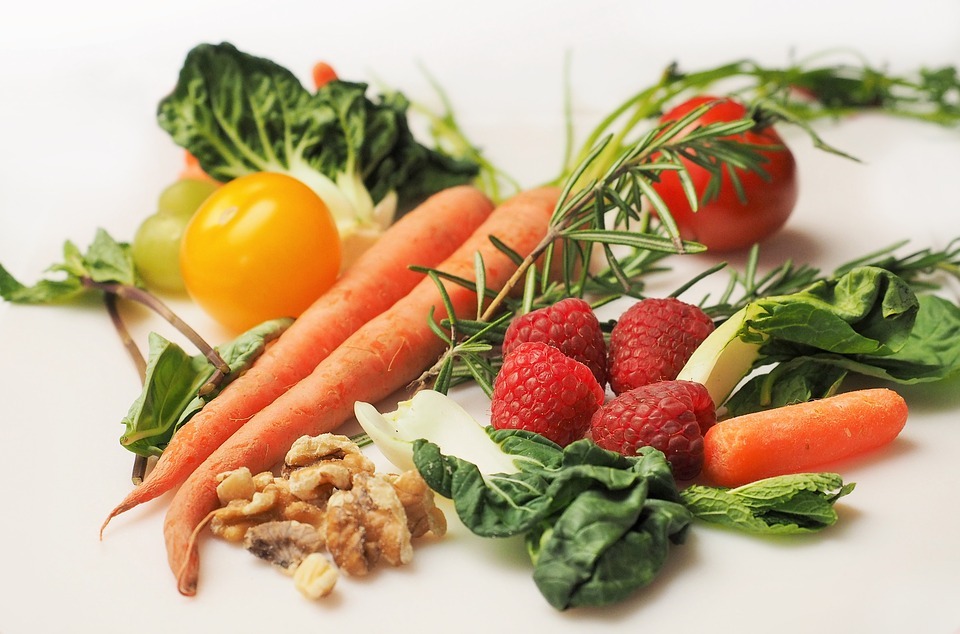Eating together with the family is the most important thing to do at home to form a bond. The bonding would be more beneficial if you can serve or cook meals that are rich in nutrients, which will surely provide your family with a healthy diet.
While most of us buy foods in the market that are deemed “healthy,” some of these foods would often be non-organic. These non-organic foods would usually have pesticide residues and chemical substances used in harvesting and farming that can have adverse effects on your family’s health.
Almost all organic and non-organic foods taste the same, but the critical difference in organic foods with non-organic ones is that they are cultivated, harvested, and packed in a much safer process.
Through the use of organic farming methods, such as using manure instead of synthetic fertilizers and also using proper mulching, tilling, crop rotation, and hand weeding instead of relying on herbicides, these organic fruits and vegetables are free from any harmful elements that are typically seen in non-organic foods.
Most non-organic methods of raising livestock would often just let them be caged in small compartments of the farm, which doesn’t allow them to develop healthy muscles and reduce fat in their bodies, resulting in less appealing meat. Organic meat is made not only by letting the livestock have access to a vast outdoor space, but also by not using growth hormones, antibiotics, or animal by-products.
Here are some more benefits that organic foods can provide for your family.
Safer and Cleaner Produce
As previously mentioned, organic foods are made from a cleaner and more natural way of harvesting or cultivating fruits, vegetables, and meat. Also, these organic products must first be tested and approved by the USDA or the United States Department of Agriculture before they can be sold in the market.
Since a lot of these organic foods are naturally cultivated, it takes a lot more time to prepare these kinds of produce. Pesticides and farming chemicals have been proven to hasten the cultivation process of vegetables. Plus, it makes the job easier for farmers since they do not have to constantly pests that are eating their products.
However, because of the application of pesticides directly on the crop, some of the products can be contaminated with the potent chemicals contained within the pesticide.
This dangerous farming process is why organic foods are becoming more popular, as consumers are beginning to be more aware of the different methods that are used to make their food.
Organic Fruits and Vegetables Have More Nutrients
According to research, organic foods are said to contain much more nutrients than non-organic foods. Organic produce has higher levels of micronutrients and antioxidants, which help fight off toxins and free radicals in your body.
Free radicals and toxins are elements that can usually damage cells and can cause them to be weakened or deteriorated, making them open to be invaded by other harmful elements like bacteria and viruses. If there are too many damaged cells in your body, your DNA will also be affected by it, causing irregularities that can produce cancer cells that subsequently form into tumors.
One way of avoiding dangerous substances from invading your body is by eating nutritious foods and having a healthy diet.
Non-organic foods will still have nutrients inside them, but the chemicals found within them may further worsen the formation of free radicals and toxins after consuming.
There are 12 non-organic fruits and vegetables that are shown to have higher levels of pesticide compared to others, and they are often called the “dirty dozen.” These fruits and vegetables are apples, peaches, cherries, grapes, strawberries, pears, tomatoes, potatoes, celery, kale, spinach, and nectarines. A lot of these fruits and vegetables contain a lot of antioxidants and nutrients, which is quite disappointing to know since chemicals can often lower the number of nutrients in these foods.
If you have a small budget and have no choice but to buy non-organic foods, then buy these 15 foods called the “Clean 15,” which are said to have the least amount of pesticide residues out of all non-organic foods. The foods that are part of the Clean 15 are mushrooms, pineapples, papayas, cantaloupes, kiwis, honeydew melons, avocados, corn, onions, asparagus, cauliflowers, cabbages, broccoli, sweet peas, and eggplants.
Organic Meat Has Healthy Fats
Beef that is organically raised contains more omega-3 fatty acids than non-organic meat. These omega-3 fatty acids help lower blood pressure and reduce the risks of getting heart diseases.
While these fatty acids are usually found in salmon, mackerel, and other fat-rich fishes, you will still be able to get a lot of them if you consume organic beef and milk. Grass-fed cows are said to give milk that is rich in omega-3 fatty acids, and the levels of these acids in organic beef are 47 percent higher than its non-organic variant.
Eating organic foods is truly healthier than consuming non-organic ones, but because of the rigorous methods used to produce organic foods, most of them tend to be more expensive compared to their non-organic counterparts. If you are prepared to spend more money for the sake of providing your children or your family safer ingredients in their meals, then you should buy organic foods.
